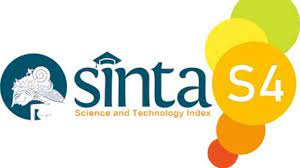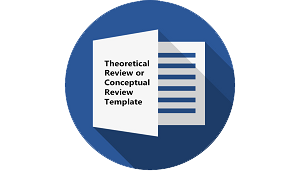The Effect of E-learning Based Schoology on the Learning Outcomes in Nursing Program
DOI:
https://doi.org/10.30957/ijoltl.v4i3.607Keywords:
E-Learning, Learning Management System (LMS), Schoology, Nursing programAbstract
The fast advance of information technology has attempted English teachers with innovative and recent teaching models. This study focuses on the use of Schoology in ESP nursing class. The quantitative research was done with one group pre-test and post-test design. The samples were the second semester ESP class of Nursing program as an experimental group that consists of 122 students and 122 students as a control group. The instruments used the test to measure the students’ cognitive achievement. The inferential analysis used in this research was a t-test. Based on the results of Group Statistics, it is found that the average value of the posttest for the control group was 61.05 while the experimental group was 84. Thus, statistically, it can be concluded that there are significant differences in learning outcomes between the control group with the lecture method and the experimental group using Schoology. In other words, the use of Schoology is effective in learning also helps improve English learning outcomes of students of Nursing Program.
Downloads
References
Ardi, P. (2017). Promoting learner autonomy through Schoology m-learning platform in an EAP class at an Indonesian University. The Journal of Teaching English with Technology, 17(2), 55-76.
Ayub, A. F. M., Tarmizi, R. A., Jaafar, W. M. W., Ali, W. Z. W., & Luan, W. S. (2010). Factors influencing students’ use a learning management system portal: Perspective from higher education students. International Journal of Education and Information Technologies, 4(2), 100-108.
Brown, M., Dehoney, J., & Millichap, N. (2015). The next generation digital learning environment.
Ghilay, Y. (2017). Online learning in higher education. New York, NY: Nova Science Publishers.
J. Cummins, J Brown, and D. Sayers (2007) Literacy, technology, and diversity: Teaching for success in changing times. Boston: Pearson.
J. Sánchez, O. Zegarra, (2017) "Aplicación del Programa Virtual LMS-Schoology para mejorar el Rendimiento Académico del área de Investigación en Estudiantes de MaestrÃa de la Universidad Autónoma del Perú". In: IV Congreso Iberoamericano de Estilos de Aprendizaje. Concepción, Chile, pp.1-25.
K. C. Vilo, (2014) "Manual imprescindible redes sociales para la educación", Educación XXI, vol.14, no.1, pp.. 293–294.
Malikowski, S. R., Thompson, M. E. & Theis, J. G. (2007). A model for research into course management system: Bridging technology and learning theory. Journal of Education Computing Research, 36(2), 148-173
Mulyono, H. (2016). Using quipper as an online platform for teaching and learning english as a foreign language.
Nasrullah, Rulli. (2015). Media Sosial; Perspektif Komunikasi, Budaya, dan Sosioteknologi, Bandung: Simbiosa Rekatama Media
Pilli, O. (2014). LMS Vs. SNS: Can social networking sites act as a learning management system? American International Journal of Contemporary Research, 4(5), 90-92.
Purnawarman, Pupung & Susilawati, Susilawati & Sundayana, Wachyu. (2016). The use of Edmodo in teaching writing in a blended learning setting. Indonesian Journal of Applied Linguistics. 5. 242. 10.17509/ijal.v5i2.1348.
RATNASARI, Desi; ARBAIN, Arbain. The design of speaking materials for hospitality students of Trans Ocean Floating Hotel program based on competency based language teaching approach. Journal of English Language and Pedagogy, [S.l.], v. 2, n. 2, p. 121-130, nov. 2019. ISSN 2579-8782. Available at:<http://jurnal.ustjogja.ac.id/index.php/ELP/article/view/4878>. Date accessed: 23 dec. 2019. doi:http://dx.doi.org/10.36597/jelp.v2i2.4878.
S. Biswas (2013) "Schoology-Supported Classroom Management: A Curriculum Review". Northwest J Teach Educ, vol.11, no.2.
Schrock, Andrew. (2006). Myspace Or Ourspace: A Media System Dependency View Of Myspace, Thesis, University Of Central Florida.
Steinberg, S. & Riehl, J. (2013). Technology lessons by age group. In J. L. Tahnk (Ed.), Teaching technology: High-tech education, safety and online learning for teachers, kids and parents (pp. 91-99). New York: Read Me.
Stošić, L. (2015). The importance of educational technology in teaching. International Journal of Cognitive Research in Science, Engineering and Education, 3(1), 111-114
Stockwell, Glenn. (2013). Technology and Motivation in English-Language Teaching and Learning. 10.1057/9781137000873_9.
Sucipto, T. L. A., Efendi, A., Hanif, H. N., & Budiyanto, C. (2017). The Influence of Learning Management Technology to Student’s Learning Outcome. IJPTE : International Journal of Pedagogy and Teacher Education, 1(1). doi: 10.20961/ijpte.v1i1.4606
Taylor, Victoria, (2013) Japan to Launch ‘Fasting’ Camps for Internet Addicted Students, dalam http://www.nydailynews.com/lifestyle/japan-launch-internet-fastingcamps-article-1.1440483
Tugiyo Aminoto & Hairul Pathoni. (2014). Penerapan Media E-Learning Berbasis Schoology Untuk Meningkatkan Aktivitas dan Hasil Belajar Materi Usaha dan Energi Di Kelas XI SMA N 10 Kota Jambi. Jurnal Sainmatika Vol. 8, No. 1. 2014. ISSN 1979-0910
W. J. McKeachie, and M. Svinicki, (2006) "McKeachie’s teaching tips: Strategies, research, and theory for college and university teachers". Boston: Houghton-Mifflin, 2006.
Wright, C. R., Lopes, V., Montgomerie, C., Reju, S., & Schmoller, S. (2014). Selecting a learning management system: Advice from an academic perspective.
Young, Kimberly S., and de Abreu, Cristiano Nabuco. 2011. Internet Addiction- A Handbook and Guide to Evaluation and Treatment, JohnWiley & Sons Inc, Canada.
Downloads
Published
How to Cite
Issue
Section
License
Authors who publish with this journal agree to the following terms:
- Authors retain copyright and grant the journal right of first publication with the work simultaneously licensed under a Creative Commons Attribution-ShareAlike 4.0 International License that allows others to share the work with an acknowledgement of the work's authorship and initial publication in this journal.
- Authors are able to enter into separate, additional contractual arrangements for the non-exclusive distribution of the journal's published version of the work (e.g., post it to an institutional repository or publish it in a book), with an acknowledgement of its initial publication in this journal.
- Authors are permitted and encouraged to post their work online (e.g., in institutional repositories or on their website) prior to and during the submission process, as it can lead to productive exchanges, as well as earlier and greater citation of published work (See The Effect of Open Access).












